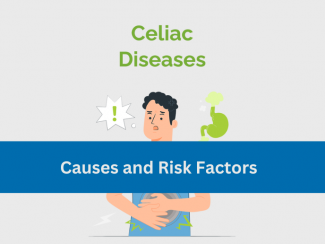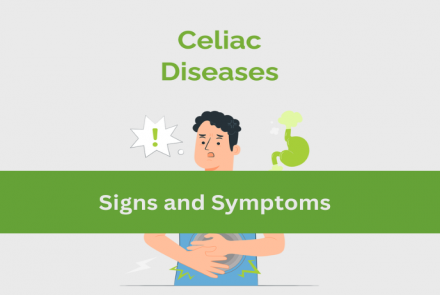Also known as celiac sprue or gluten sensitive enteropathy. This is a digestive and autoimmune disorder that causes damage to the lining of the small intestine when foods with gluten are eaten.
About 1 in 100 people suffer from this condition.

Normally, the body’s immune system is designed to protect it from foreign invaders. But when people with celiac disease eat foods containing gluten, their immune system forms antibodies to gluten, attacking the intestinal lining, causing inflammation in the intestine and damaging the villi (hair-like structures seen on the lining of the small intestine). If the villi are damaged, the person cannot absorb nutrients properly and ends up with malnourishment.
Are you at risk of developing celiac disease?
This depends on:
- Genes: The risk of celiac disease may run in the family. If a close relative (parent or sibling) has it, there’s a 1 in 10 chance of developing celiac disease.
- Infection: When a person has inherited this risk, an infection in the environment can trigger changes in the small intestine and cause celiac disease.
- Autoimmune condition – Presence of autoimmune diseases such as type I diabetes, thyroid, rheumatoid arthritis, ulcerative colitis, etc.
- Chromosomal disorders such as Down syndrome, Turner’s syndrome, etc.
- Gastrointestinal infections such as rotavirus in childhood or recurrent diarrhoea.
- Early start of gluten in childhood diet.
Read a personal experience of Celiac Disease.
Changed
24/Apr/2024
Condition










